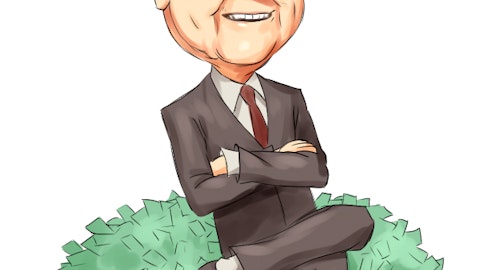Any upscale café in São Paulo or Rio features young professionals on MacBooks and businessmen showing off their iPhones. Despite stalled GDP growth, Brazil is a growing market for Apple Inc. (NASDAQ:AAPL) products; so much so that the swelling professional class has been shelling out $1,200 for new iPhone 5s – and that’s the price with a contract. But on Thursday, Brazil’s intellectual property authority, INPI, announced that Apple does not own the iPhone trademark in the Brazilian market. What does Apple Inc. (NASDAQ:AAPL) stand to lose?
Trademark Litigation
Thirteen years ago, a tiny electronics company named IGB Electronica SA applied for a trademark for the word “iphone” for use in the Brazilian market. The company received the trademark in 2008 and released the iphone neo one in December 2012. Amusingly, the iphone neo one is a cheap, unremarkably designed smart phone on the Android platform. Apple Inc. (NASDAQ:AAPL) attempted to register the “iPhone” trademark for the Brazilian market, but INPI upheld IGB Electronica’s (also known as Gradiente) ownership and Apple now risks being sued for damages should it continue to use the term “iPhone” in the Brazilian market.
Apple Inc. (NASDAQ:AAPL) can and will appeal the case. However, Apple’s chances of invalidating IGB Electronica’s trademark are slim and the case will likely drag on for years. In a similar case, Converse All-Star sued a Brazilian company in 1984 for registering the trademark “ALL STAR” in 1975. An appeals court ruled in favor of Converse All-Star 18 years later. With Thursday’s ruling, the quicker and possibly cheaper option is for Apple Inc. (NASDAQ:AAPL) to buy the trademark, though the Brazilian company has not publicly named a price or any intention to sell.
Will Apple Lose Brazil?
Thursday’s ruling most likely put plans to open Brazil’s first Apple Store on hold and could pull iPhones from the shelves of electronics retailers across Brazil. However, while in-country sales of iPhones may disappear, Brazilians are likely to keep buying Apple’s iPhones in droves – just via Miami and New York.
Two factors guard Apple from losing the Brazilian market. First, the Brazilian government charges 100% duties on imported consumer goods, making electronics, clothes, make-up, some cars, and plenty of other products at least twice as expensive in Brazil as they are in the U.S. High domestic duties coupled with rising incomes have made Brazilian tourists the biggest spenders of any traveling nationality; Brazilian tourists dropped nearly $6 billion while visiting the U.S. in 2010, according to Time. The number of Brazilian tourists and the money they collectively spend in the U.S. grows each year, often by double digits.
Brazilians wealthy enough to buy an iPhone at domestic prices already choose to circumvent duties by buying in the U.S. instead, or asking traveling friends and family. If iPhone sales are suspended in Brazil, I wager that more Brazilians will buy on the U.S. market than decide not to buy an iPhone at all.






